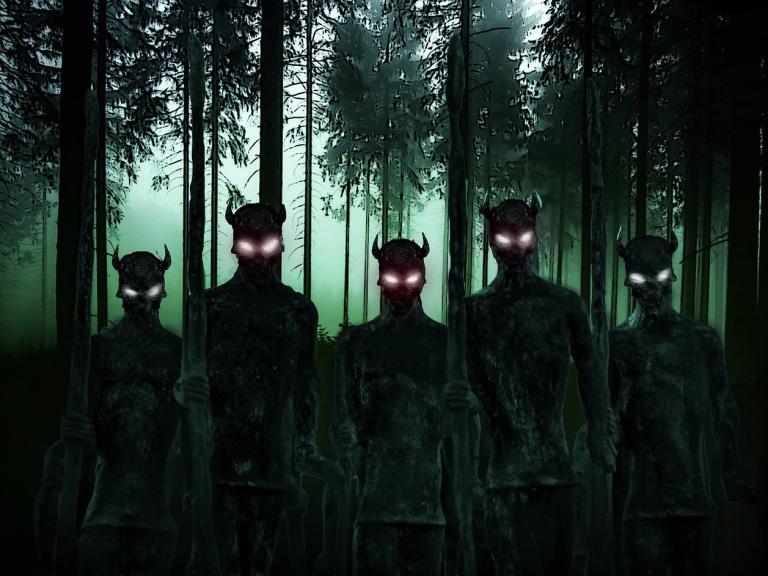”It’s me, hi, I’m the problem, it’s me.” -Elisabeth Báthory
In July of this year, an independently-published book called Witchtoker’s Grimoire appeared on Amazon, the description of which stated, “This Grimoire is a collection of spells, how to’s, [and] magical writings, by a collective of creators from Tiktok.” I myself was unaware of said book until a snarling gaggle of videos about it popped up on the witchier corners of the Clock App, and the fury with which the Grimoire was being discussed piqued my curiosity, so I started doing some digging.

I am not sure when work on the Grimoire actually began, but from what I’ve been able to piece together, the creator behind it reached out to a handful of other WitchTok personalities and asked them to contribute spells, recipes, etc. A few people took issue with this — claims floated around that the creator would not accept submissions from witches she didn’t “approve” of, which seemed counterintuitive to a “community” driven book. But within the greater publishing industry, some projects involve open calls for submissions, while others are invitation only, so if the creator hand-picked her contributors, that doesn’t constitute compromised ethics.
The contents of the book, however, raised legitimate ethical concerns. One essay seemed to suggest that corpse water could be consumed. Another provided instructions for a spell jar that the author had made for a friend undergoing surgery to remove cancer: Because of the phrasing, some readers thought that the author was declaring the spell jar cured cancer.
Having read both snippets (screenshots abound), I can say that the actual problem is a severe lack of editing — like, if the cancer anecdote had been cut, the chapter on the spell jar would’ve been just fine. But it’s this dearth of editorial oversight that led to even bigger problems, primarily accusations that a good chunk of material in the book was plagiarized.
According to allegations, passages from at least seven different published works were lifted whole-cloth and incorporated into the Grimoire. Additionally, someone ran sections of the book through a plagiarism detection engine and apparently found that a number of spells had been copied and pasted directly from websites. And while the Grimoire does feature a bibliography, it does not include citations, which, honestly, would’ve only be helpful had the authors used their own voices to rewrite or summarize the info in question.
In a way, the bibliography almost functions as an admission of guilt. Like, “Oh, you wanna know where we swiped all this stuff? Feast your peepers!”

Lines were immediately drawn in the sand once official controversy hit the algorithm, with people on one side vehemently denouncing the Grimoire, and friends and family of the book’s creator vehemently denouncing the people denouncing it. The online battles escalated, and I decided that not a damn bit of it was any of my business. (Although I did throw the lithomantic stones to see if I should offer some objective clarification on what corpse water actually is. It felt like a neighborly thing to do.)
But as evidence of plagiarism piled up, and the book’s supporters realized that they were going to have to switch tactics if they wanted to stay on top of the situation, one of them said something that made me understand how problematic the Grimoire had been from the very onset.
I was scrolling through my For You Page a couple of mornings ago, flipping past conspiracy theories and videos from disillusioned contributors publicly requesting that their submissions be removed from future editions, when I landed on a live conversation between the book’s creator and one of her more ardent apologists. And that’s when I heard the following:
“[You] put together a conglomeration of people’s submissions. I don’t understand why all this comes on you. Like, you have to double- and triple-check every submission?”
“Or tell people that fire burns,” the creator replied. “Or that water is wet. Or that you should not get in the shower with a hairdryer going.”
And I had to stop for a second and collect myself, because the answer to all of the above is a non-negotiable yes: The editor of an anthology must absolutely double- and triple-check every submission, and the anthology itself must contain disclaimers to protect everyone involved. Whether desktop or traditional, this is how publishing works.

But this also made me understand that the people who put out the Witchtoker’s Grimoire approached publishing the same way they approach witchcraft: It’s something you can just do successfully without any education or training or skill. It’s not about growing, or teaching, or sharing knowledge: It’s about snatching up unmerited authority and using it to bully all of the smaller fish in the pond.
And when called out for troubling behavior, or spreading misinformation, or outright theft, it’s about redirecting the narrative, and manifesting a projective shield of victimhood behind which to hide: Anyone who speaks ill of them is a jealous detractor who doesn’t want you to know the truth.
It’s a shield that tends to collapse and bonk heads when the unbiased truth comes out.
As of this writing, the Witchtoker’s Grimoire has been pulled from publication, and the creator has issued a public apology, taking full responsibility and letting her viewers know that there will not be a revised edition. (The original plan was to tweak the worrisome bits and rerelease it.) To her credit, this was the right thing to do, and it displays some maturity on her part. Although as contrite as the video came across, it may have also just been an attempt to stave off the legal ramifications of selling a plagiarized manuscript.
If that’s the case, she’s in for a series of unfortunate surprises. Regardless of how sorry she may be about the debacle, the book went to print, and multiple copies were purchased — if the allegations prove accurate, this means that copyrights were actively infringed, and there will be consequences for that. A remorseful “whoops” won’t protect her.
I don’t know if she’ll ever try her hand at publishing again, but if she does, she’ll have a very hard time convincing anyone to take a chance on her pitches. Traditional publishers will more than likely give her a wide berth, and freelancers who want to keep their reputations stain-free will avoid collaboration. This particular path has ultimately come to a dead end for her.

“There is no easy or fast road to big rewards that are truly worthwhile. Eschew tantalizing shortcuts and lazy practices. Fully invest the time and care needed to perform a task properly and responsibly — build any house as if you yourself were going to live in it.”
The results we get out of our craft are directly and prosperously proportionate to the effort we put into it. If we expect good results from whatever it is we’re doing without honest effort — or if we expect results without honesty, period — we’re better off not doing it at all.
And y’all, we don’t just have to live in what we’ve built.
We have to live with it.


















